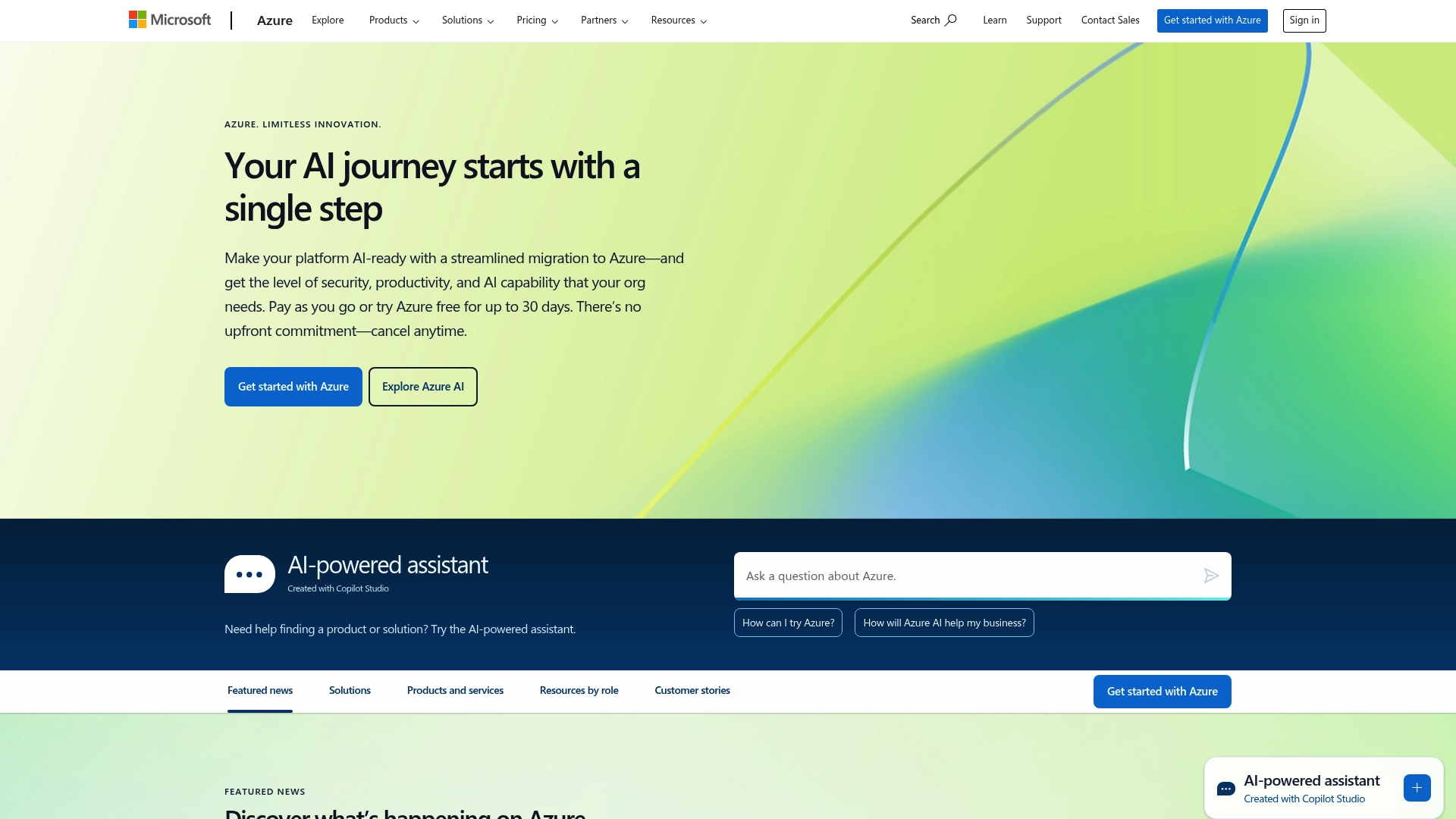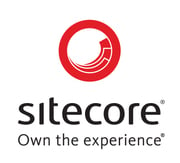

Microsoft Azure Reviews & Product Details
Microsoft Azure is a cloud computing service created by Microsoft for building, testing, deploying, and managing applications and services through Microsoft-managed data centers. It provides a range of cloud services, including those for compute, analytics, storage, and networking, allowing users to pick and choose from these services to develop and scale new applications, or run existing applications, in the public cloud.


| Capabilities |
|
|---|---|
| Segment |
|
| Ease of use |
|
| Deployment | Cloud / SaaS / Web-Based |
| Support | Chat, Email/Help Desk, FAQs/Forum, Knowledge Base, Phone Support |
| Training | Documentation, In Person, Live Online, Videos, Webinars |
| Languages | English |
Exclusive savings on Microsoft Azure through Findstack Deals



- PowerShell, Managed K8S, Windows Native compute
Native integration with Nix like shell, and a cloud shell option.
Office 365 integration with Active directory for seamless IAM implementation.
Easy to work. It is very user friendly and easy to learn.
Nothing yet. I would have to explore other services before saying anything.
it is providing cloud services and we really need easy server building methods. I am not benifitting financially yet.
Azure is useful for creating vm easily with necessary configuration
Azure's Ui is not good as AWS. It's sometimes difficult to find some terms.
Deployment with multiple type of languages like react , node js , Java python with VM.
The ease of setup and use is great - you can have a SQL server and database setup and running in Azure within 5 minutes.
At the lower price points, the performance can be pretty bad. Using the DTU pricing models, which is all that's available at the lower ranges, the throughput is poor and your database will stop operating once you hit the DTU threshold. There's no warning, connections and transactions just fail. The storage capacity to compute capacity balance at the lower price points is wrong.
We use it to run our platform backend.
Good architecture for most scenario, frequent use cases.
Stability, clustering. Ability to manage RBAC access.
Deploy microservices infrastructure for my customer.
The software doesnt cost a lot.
The software is difficult for beginners.
My colleauges are using it
The idea itself is perfect. Database as a service without managing it`s infrastructure. I beleive in future releases it will grow to something more suitable for complex workloads. Great resource management, elasticity and scaling options. Much better than Amazon RDS. Very secure solution. Perfectly works for simple web applications processing sensitive data
Functionality is still not enough for complex applications, we failed to go-live with it and had to deploy on-premise version of SQL Server on Azure virtual machine
Data platform for web aplications
Easy ability to learn. Azure Helps Your Application Become More Responsive as User Load Increases.
Slow processing. High Throughput, Low-Latency Data Access To Power Scalable Azure Applications.
Azure Cache for Redis can also be used as an in-memory data structure store, distributed non-relational database, and message broker.
Without Question it's probably one of the most flexible platforms available today.
I can begin with cost... As a developer who mostly develops on the Microsoft stack it's not easy for me to be critical as I love Visual Studio and SQL Server... but one thing that Microsoft has kept in play is complicated licensing pricing. It is so complicated that you can ask two different Microsoft Certified licensing professionals the same question and receive two different answers. Unfortunately Azure has picked up this HORRIBLE practice and made figuring out how much you actually are going to need to pay anyone's guess. Several times I've had to tell clients flat out that they would have to get the service for a couple months to get an idea of how much it costs... Who want's to do that? Horrible! I am always for advancement... but another thing I highly dislike about Azure is the platform changes way too much way too fast! I've spent a lot of time and effort learning the platform only to have to relearn features again weeks later! I feel bad for the professionals who take the time to do online videos on the Azure platform because each and every video I've ever seen that covers a feature of Azure is quickly outdated... I've literally watched videos or followed online tutorials that are only a couple months old and couldn't follow along because the platform changed how it was done!
I've had several clients host virtual domains and virtual machines in production work... but because of the cost and the complexity of the ever changing platform I have since migrated all of my customers to 1 and 1.
Quick an easy to launch a SQL instance with robust security offerings
Everything else, pricing - essentially paying for enterprise license at every scale point, regardless of need, BYOL helps, but you pay a lot for very mediocre hardware/performance support - even with premier support it would take on average 2 weeks to resolution for bugs, and even performance issues would generally take 6+ hours before magically disappearing stability - node changes with up to 30s downtime every 4-7 days, breaking changes that you cannot opt out of, essentially you are in a constant Beta limitations - DTU model and vCore are fundamentally broken for > 500Gb databases in terms of backup/restore and migration, regardless of pool/db DTU/vCore size differences - Just enough differences from standard SQL that you will likely have to make changes to your applications migration limitations - It is fairly easy to migrate-in, but we evaluated about 8 different tools to migrate data back out and it was painful due to larger database sizes api/cli instability - with about 400 databases and 2-10 CRUD operations/week in terms of database pools we constantly had to manually monitor our automation increased DBA needs - there were so many new issues with Azure and tools/scripts that needed to be modified that we had to add a new DBA and rework most of our automation. Even after 18 months, we still were at higher DBA utilization than before Azure DevOps needs - Not purely and Azure SQL issue, but the fact is that I can fairly easily find/hire someone to build a SQL cluster, finding an experienced Azure DevOps engineer is extremely difficult. With Azure SQL being proprietary there isn't much tooling that works with it well either Documentation - As-is the case with most of Azure, the documentation is scattered, generally outdated, and often wrong. We often went through Premier support, but even then we would often get an answer that was either old or just didn't work.
The original goal was to simplify our database operations, and get better value than our private cloud solution. Ultimately we started the process to move to SQL on IaaS due to all of the Azure SQL issues
The built in security that it offers is nice.
Everything else - this is so bad to use that I just booted up a VM and used that instead. Random restarts leading to your working data being lost, performance being up to 100 TIMES slower than if you just hosted it yourself. Unreliable networking - just becomes unreachable for periods of time. Overpriced.
Shared working memory set between large distributed applications.
Allows company to do backups and integrate with different data sources
There is solutions much more viable. Microsoft is not investing on it
Backup critical company data
To be honest I liked the fact that they reached out to me to see if I needed help but...
When I responded to the e-mail reaching out for help they never responded back
There is nothing I was able to solve as they never got back to me to help me get started
I think the only good thing about the project is that they have open sourced the project. But that probably means that Microsoft is dropping support for it.
Everything, but especially the Emulator that takes 5 minutes to start up each day. The deployments take at least 30 minutes to go out so that is awful as well. I am currently in the process of migrating away from service fabric and getting the UI into a docker container and a node.js app.
We use Service Fabric to deploy a set of microservices. This in turn allows us to keep a continuous uptime with our services.
I've found Azure SQL Database to be an exceptionally reliable platform for both my personal and production environments. Its integration with Azure services streamlines my workflows and enhances the overall efficiency. The high availability and built-in intelligent performance features ensure that my applications run smoothly with minimal downtime, which is critical for maintaining a good user experience. Moreover, the scalability options are a breeze, allowing me to adjust resources according to the demand without any hassle. The security features, including automated backups and advanced threat protection, give me peace of mind, knowing that my data is well-protected.
While Azure SQL Database is a robust and feature-rich platform, it can be a bit overwhelming at first, especially when dealing with cost management and optimization. Sometimes, the pricing model seems complex, making it challenging to predict monthly costs accurately. Additionally, although rare, when technical issues arise, navigating through the support documentation can be time-consuming, and I wish there was a more streamlined process for resolving such issues.
Azure SQL Database allowes me to store structured data in a reliable fashion.
It's similarity with on-premises SQL Server, as any user which is new to cloud won't found any difficulty with this SQL cloud version, it's that user friendly. Any one who is working on on-prem servers from long time generally find difficulty to switch and understand the working of cloud, but in case of azure sql they won't face any challanges, it's quite easy to use.
Although Azure SQL is good enough but yes there are some drawbacks as well with azure SQL like, No options available for to generate database diagrams, also there are many system views and system stored procedures that do comes with On-premises SQL Server but not all of them found in azure SQL neither there alternative.
There are many problems with which azure SQL helps like 1.) The Scale up, Scale down issue that generally arises in on-prem servers, but it's solution in Azure SQL is just by few clicks. 2.) As this is a Cloud era, so everyone needs there services to get integrated with cloud, as As Azure SQL is PAAS service, it's intergation is quite convinient not only in Azure Cloud but on other cloud platforms.
Being able to access SQL Database on cloud platform like Azure is a big plus for data engineers. It saves us from a lot of hustle. The important aspects of data like scalability and data security are very well handled. Its easy to configure with very less to think of at our part as most of the config set up is taken care by Azure in the backend.
Nothing as such! Being able to use and integrate all the functionalities of Azure in SQL is definately a blessing.
Azure SQL Database is saving me a lot of work of setting up the database. Also configuring the DTUs and selecting the service tier are easy tasks. Its ease of scalability is a very prominent feature. All in all it saves me time which is an important factor for me.
Scalability (can do auto-scaling when there is a need for more storage), High Availability and Disaster Recovery for business-critical tier, Security, and Performance if you tune the database properly.
The cost is high, there is limited control comparing to on-prem, and we have to do tuning to get the best out of the sql database and it is not so straightforward
Scalability issue, on prem if the storage ran out, we need to get extra disk and need to perform configuration for it to scale. Going to cloud, this is automated.
The DB have a great robustness and UI is very good.
Sometimes the DB logib is un responsiveness due to server busy.
We have RDBMS data and quanity of data is very big so we are hadnling this with Azure SQL DB.
The efficiency of deploying Azure SQL in minutes without the use of virtual machines.
Some features are not available on PaaS Solutions like SQL Agent, Linked Services.
Database for my internal apps and customer apps






